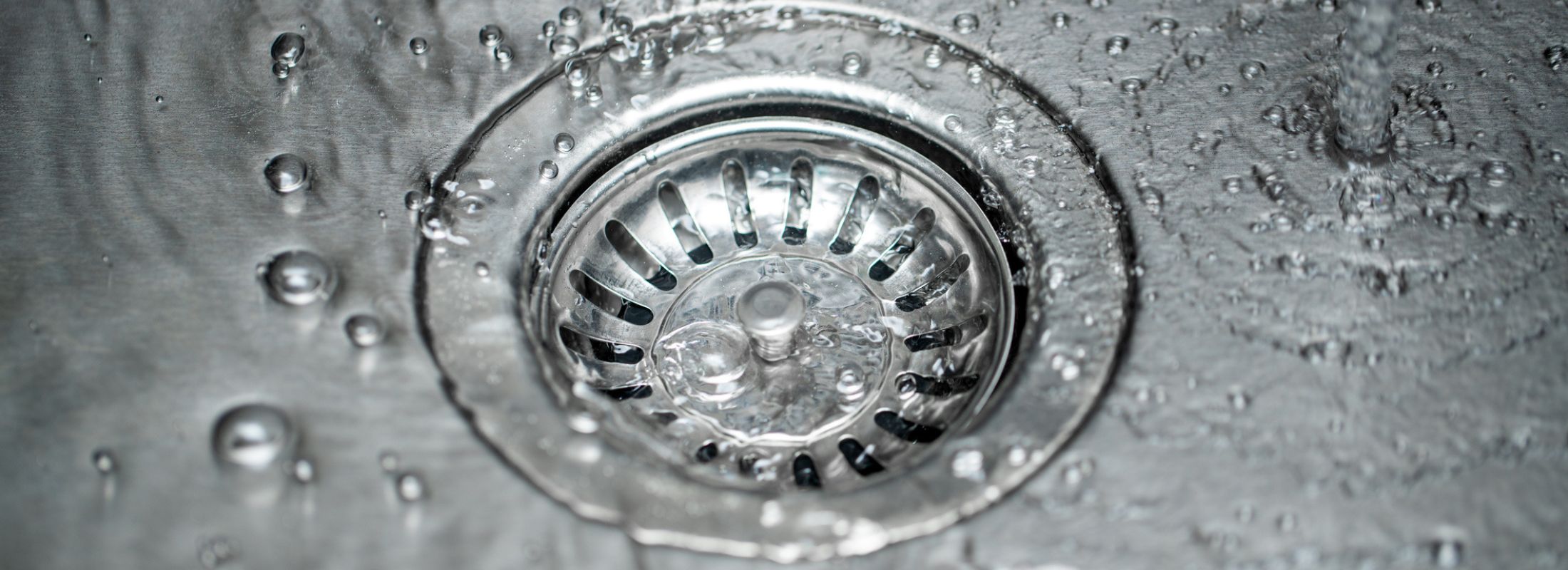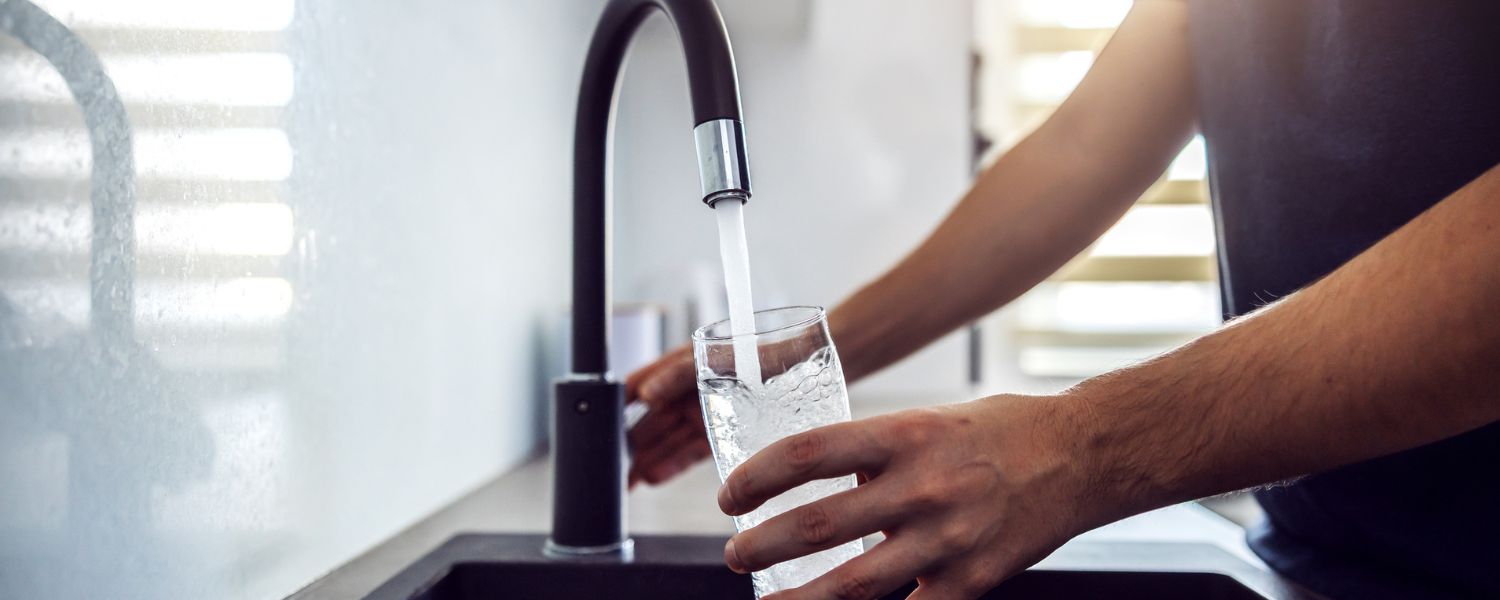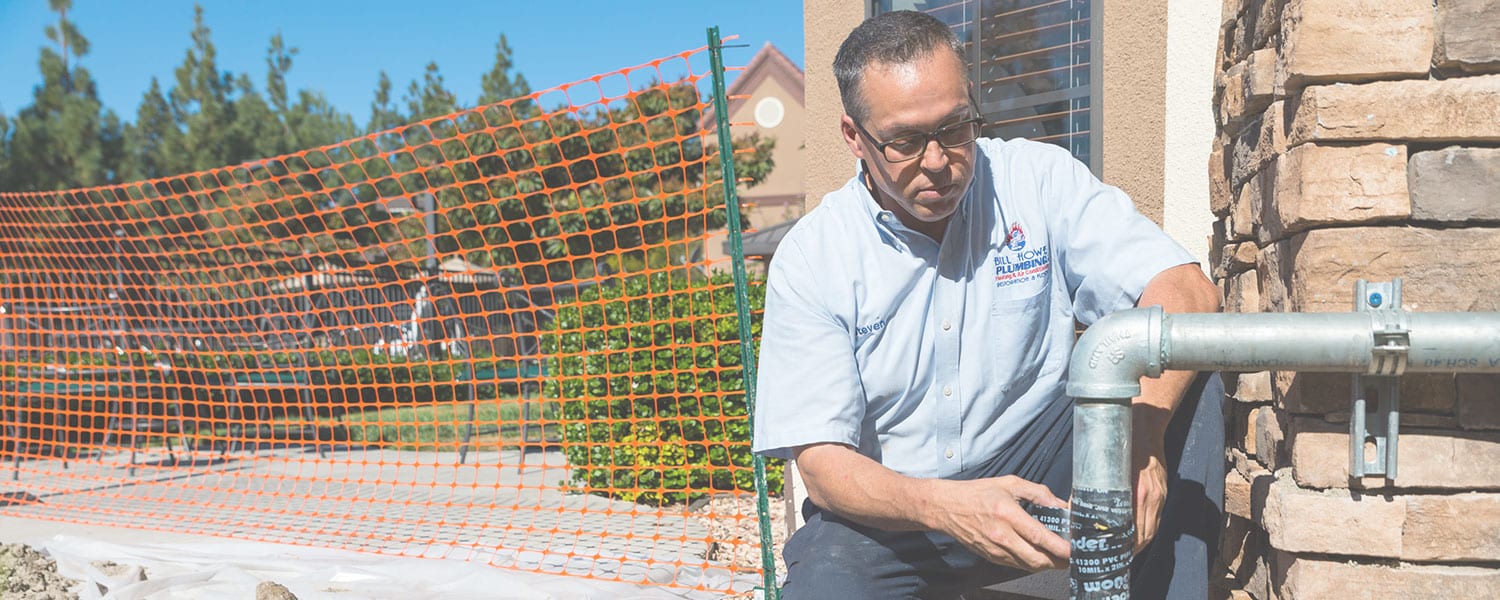Have you thought about scheduling a plumbing inspection? As a homeowner, it’s easy to overlook potential issues within your home’s plumbing systems and drains. Residential plumbing often takes a backseat until a problem arises or a flood occurs. However, a professional plumbing inspection is an invaluable way to ensure your plumbing system is in top condition.
Regular plumbing maintenance and inspections can help homeowners prevent costly repairs, water damage, and the stress of unexpected emergencies. There’s no better way to ensure the safety and comfort of your home than by investing in a professional plumbing inspection to safeguard your most valuable asset—your property.
In this article, we’ll delve into why plumbing inspections are essential, what they entail, and how frequently plumbing systems should be inspected.
Why are Home Plumbing Inspections Important?
Let’s face it. No one enjoys a plumbing emergency. And while homeowners can be vigilant and check for plumbing leaks and slow drains, professional inspections can be more beneficial. Skilled and trained plumbers understand how the plumbing system in home works and can identify hard to spot issues bycamera inspection. Plus, professional plumbing inspections may force you to address the less pleasant aspects of a home plumbing system, such as leaking drain lines underneath the property.
A plumber’s experience and expertise allow them to properly address uniform plumbing code needs, hidden leaks, excessive pressure, and other issues that may contribute to failures in the future. Plus, licensed and skilled plumbers perform work safely to protect your home and family.
Are you planning on purchasing a home? A home inspector may miss problems that only a professional plumber can spot. It’s a smart idea to schedule a plumbing home inspection with someone other than the home inspector. That way, you have a clearer picture of what you are getting into. The last thing you want to do is buy a home with plumbing issues that can quickly turn into a giant money pit.
The following are reasons to consider a plumbing inspection:
- You are in the process of a real estate transaction and want to avoid any potential plumbing disasters.
- You want to sell your home and ensure that your home’s plumbing system is up to par.
- You want to prevent unexpected plumbing expenses.
- You want to learn more about the plumbing system in your home.
- You need the peace of mind.
So, how often should plumbing be inspected?
An annual home plumbing inspection is one of the best ways to ensure that your plumbing stays in excellent shape. Best of all, plumbing inspections can even include a water heater flush, which is an excellent way to remove sediment and ensure that your water heater keeps doing what it does best—providing hot water for dishes, showers, and more.
No matter your reason, a plumbing inspection has many benefits. You may need a service you didn’t think about, such as backflow prevention. When considering a plumbing home inspection, it pays to choose a company trusted in San Diego for decades, like Bill Howe. A highly trained technician knows how to test plumbing for inspection and aims to prevent future plumbing repairs.
What Does a Home Plumbing Inspection Include?
A trustworthy plumber knows all about the inner workings of a plumbing system. They have a lot of tricks up their sleeves and know what to look for. After all, a trained and experienced plumber has performed many plumbing inspections throughout their career.
When it comes to plumbing inspections, there are typically a couple of ways a plumber can do them. For example, there are visual home inspections, where the plumber will take a close look at the pipes, water valves, caulking, faucets, and other parts of the system for any damage. During a walk-through, the plumber can spot any cracks, leaks, warping, mold, gaps, and other common plumbing problems.
The next type of inspection is performed with a camera. Camera home plumbing inspections make it easier for plumbers to look down a drain or dark pipes. A high-definition camera will display buildups or damage caused by roots and other elements. If it’s a stubborn buildup, professional drain cleaning can help.
A quality home plumbing inspection will also include checks on pressurized water and visibly accessible drains. Homeowners should consider scheduling a sewer camera inspection in conjunction with the home inspection to view the condition of the sewer line and address any potential issues, such as roots and heavy scale buildup. A sewer camera inspection is one of the best ways to get down to the bottom of the issue quickly.
What Happens During a Plumbing Inspection?
One of the great things about a plumbing inspection is its thoroughness, especially when a sewer camera inspection is a part of it. During a plumbing home inspection, the plumber will likely have a checklist to ensure that all steps are completed. After all, a lot goes into the home plumbing inspection process, so having a checklist ensures everything is noticed.
Some of your home’s most utilized rooms have some kind of plumbing element. From the toilet to the kitchen sink, dishwasher, and laundry room, there are so many parts of a plumbing system that it’s easy to see how something can break down.
So, what does a plumbing inspection involve for each room in the home? Let’s break down the plumbing inspection for you so you can get a clear picture.
Kitchens
During home plumbing inspections, our plumbers will assess the condition of the kitchen plumbing. We will check the water shut off valves and water supply lines underneath the sink for signs of leaks or corrosion and assess the exposed drain line and kitchen faucet. Common signs of active or past leaks include corrosion and moisture present in faucets and shut off valves.
If the faucet is loose or losing pressure, a home plumbing inspection can identify if it needs repair or replacement and installation and consider the major factor contributing to the leak. Sometimes it is age, but excessive water pressure can also cause worn seals over time.
Inspections will also assess if drains are running slow and discuss any signs of heavy grease buildup, such as odors coming from the drain, fruit flies, or leaking drains.
Thorough plumbing inspections will also include a dishwasher inspection. Dishwashers might have issues with the air gap or may not be properly anchored. If you have woken up to a flood around the dishwasher, the seals may be broken, or there could be another issue. A home plumbing inspection will solve the issue fast.
Bathrooms
The bathroom also has water shut off valves behind the toilet and underneath the lavatory sink. Inspecting all of the shut off valves and fixtures in the home on a regular basis can help save major water damage. Shut off valves do not get regular use and can wear over time due to high water pressure. These can burst in the middle of the night and flood an entire home in little time. In fact, our plumbers recommend changing them every 5-7 years.
Home Inspections can identify slow toilet leaks or determine if the tank parts need to be replaced. Toilet leaks can waste more than 2,000 gallons of water a year and lead to excessive water bills.
Our experthome inspection can also check the showerhead for scale buildup and provide tips on how to maintain proper water pressure with easy household items, vinegar, and hot water.
Water Heater
Water heater leaks are another cause of flooding and water damage in the home. Aging systems and excessive pressure can lead to leaks. During routine residential plumbing inspections, the age of the water heater and signs of potential problems can be identified to make a recommendation for the best course of action. Why wait until the water heater has busted and created a pool of water in your garage or home?
Water heaters over 6 or 7 years may be losing efficiency and costing more in utility costs. Our plumbers will also address any city or uniform plumbing code regulations, as they change on a regular basis.
Exterior of the Home
Plumbers will look for signs of water and gas leaks on the exterior of the home. Moisture presence, pooling water, or foundation damage can be caused by slow leaks due to inadequate piping under the foundation or in the irrigation.
Dying patches of grass, hissing sounds, and bubbling water on the ground can indicate dangerous gas leaks needing to be addressed immediately.
Underneath the Home
If your home is on a raised foundation, it is likely that your home has exposed drain and water pipes underneath the home. As long as there’s access, plumbers are able to crawl under the home (with all the spiders) and check for signs of leaks and damage. Understanding what you are looking for is important, which is why it is integral to hire a licensed professional. After all, do you want to be the one crawling underneath the home with all the spiders and rodents?
So, now that you know what happens during a plumbing inspection, it makes sense to schedule one with a professional plumbing company known for its legendary service, Bill Howe. Of course, we understand that your time is precious. Wondering how long a plumbing inspection takes? While every home differs, we recommend setting aside a couple of hours.
What to Do Between Inspections
Homeowners can be proactive by performing regular leak checks on visibly accessible plumbing. Pay attention to utility bills and listen for strange noises. Additionally, ensure that the home is outfitted with carbon monoxide detectors and that you know the signs of dangerous gas leaks. If you suspect any problems with your plumbing system, don’t ignore them.
Have you noticed leaks in your home? If signs of moisture are present, call the team at Bill Howe for a professional leak detection. Water leaks not only cause water damage but facilitate mold growth and lead to structural damage within the walls if not addressed immediately.
Prevention is the best way to avoid problems that could damage the home or cause health issues. Our expert plumbers will walk through the inspection with you and make recommendations for repair, as well as educate you on do-it-yourself tips to help avoid clogged drains and water leaks in the future.
If you have not scheduled a home plumbing inspection, or it has been a few years, call the team at Bill Howe Plumbing. With over 45 years of service in San Diego plumbing and drains, we know what we are looking for and will help you to protect your property.
Call 1-800 BILL HOWE (245-5469) or book your service with convenience with our online booking today.




